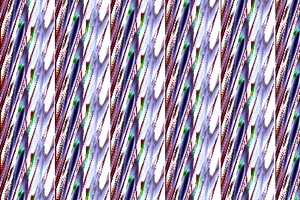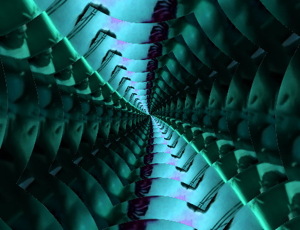Sound: Advanced Topics I


We plan to cover "algorithmic composition" this semester, or the use of computers by lazy, lazy composers to get the machines to do all their work for them. Ha ha! We'll be doing a bit of programming in the class BUT don't be scared or worried if you have never thought of doing this yourself. We will be approaching everything from a musical perspective, and the tools we have for you to use should make any algorithmic coding a snap.
In the past when I've taught this topic, I've usually gone through the list of the usual algorithmic suspects (probabilistic, markov, chaotic attractors, L-systems, all that fun stuff) and shown how they can be employed to make weird and wonderful sounds. We're slicing the algorithmic world a little differently this term, looking at 'natural' models vs. 'synthetic' models of data/music generation. We'll still be learning the grand old techniques, but our method this term will also allow us to delve into the use of Real World data (and that BIG fun new area: BIG data) as an algorithmic compositional technique. A lot of this we'll be making up as we go along, so at least a few of the lectures will be only slightly-baked.
I'll be using RTcmix for many of the class examples. It's a functional, procedural language and I think it does a nice job of showing how various compositional algorithms work. It runs as a standalone program (for free!), or you can run it inside Max/MSP or pd (pd is also for free!). RTcmix has a feature that allows you to translate scripts you develop using it into apps for iOS or Android devices. If we have some free time towards the end of the term, I will show you how to do this.
I expect we will also be touching on some other computer music
languages and apps, things like
SuperCollder
and perhaps
OpenMusic.
So if you do have a decent amount of programming
experience, then the class should still be informative because of the
specific tools and techniques we will be covering. Plus all that
music stuff we do. During the term,
if you are having serious problems, please come to
talk to Onur or me so that we can work with you or
adjust the syllabus to get things back on-track.
Here are a few links to software that we may be using in class:
We will have several guest speakers in the class during the term. Watch for announcements on the course syllabus.
Please let us know if you are having problems getting equipment or
software to work for you. In general, if you are having difficulty
understanding the programming paradigms
we are using or the applications and information we are covering.
be sure to talk to us. We'll be happy to sit down and work through
any issues with you.
Each week we do will become a link to information relating to that
class. We'll try to keep up with linking in class patches, examples
and information, but we may fall behind. Yell at us when we do.
It's always a good idea to make an appointment to see me, even during my purported office hours, because I often have to run around campus like a maniac doing strange, computer-music stuff. If you need to contact someone at the CMC or Music Department using your actual voice, the relevant phone numbers are:
I say this every year, and generally people believe it (I think): by this point in your career the last thing you should be worrying about is a grade. The main thing is to find something that you'd really like to do and then do it. Please don't try to impress us with your consummate knowledge and skill, we are more impressed by people who do things. Honest!
Hope you enjoy the class!
